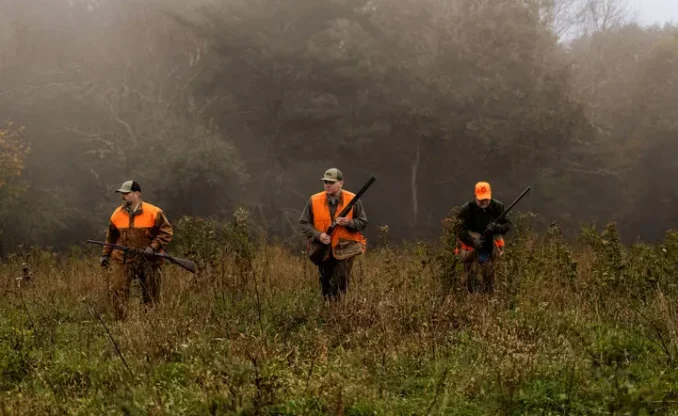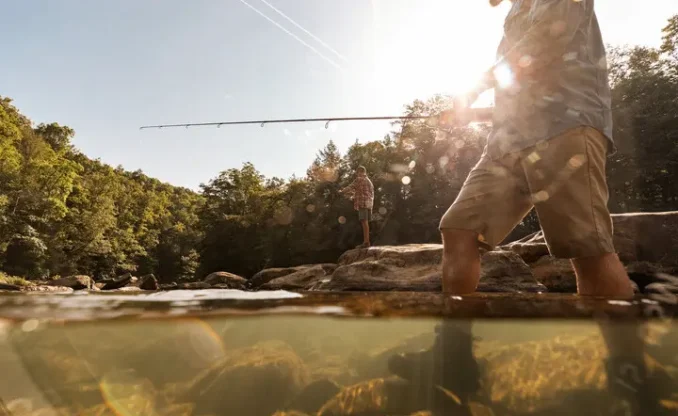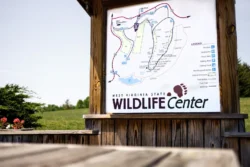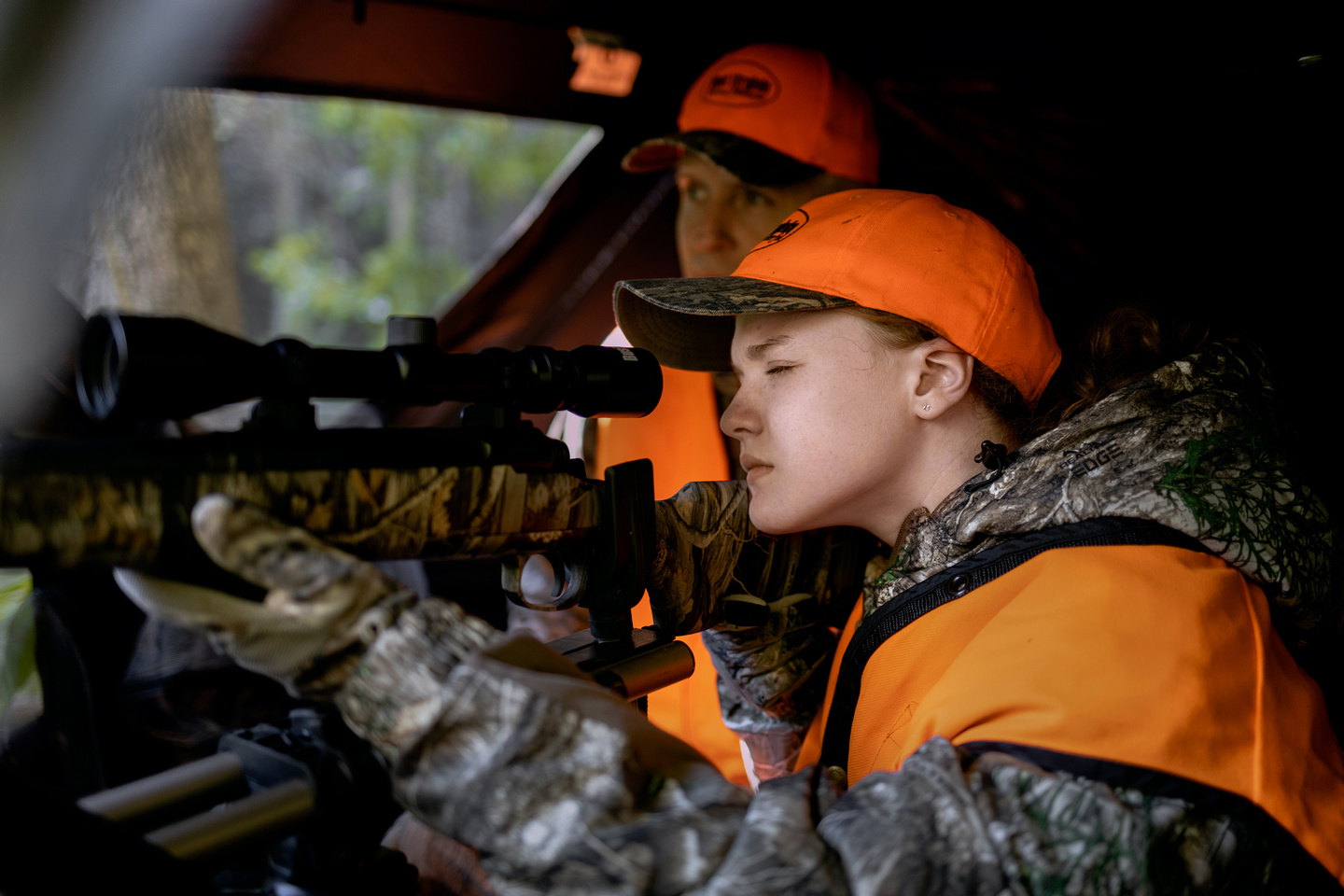Take Your First Step to Safe, Responsible Hunting in West Virginia
Whether you’re brand new to hunting, returning after a long break or introducing a young hunter to the tradition, WVDNR’s Hunter Education Program is designed to make hunting safe, accessible and welcoming for all.
Hunter Education courses are offered for free around the state all year long. Find one near you and register today!
Complete Your Hunter Education Course — In Person or Online
All hunters born on or after Jan. 1, 1975 must complete a certified Hunter Education Course before they can purchase a base hunting license. The course usually takes 12 hours to complete and a certificate of completion must be presented when purchasing a hunting license for the first time. Free traditional in-person and paid online classes are available.
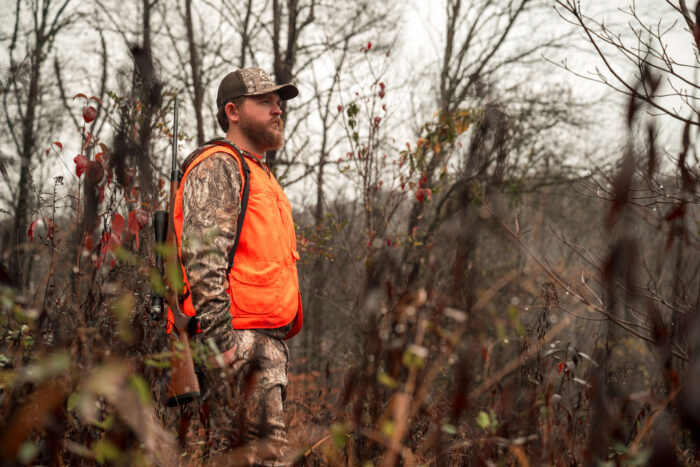
Traditional In Person Classes (Free)
WVDNR offers free, in-person hunter education classes throughout the year across the state. These traditional courses are taught by dedicated volunteer instructors and natural resources police officers who bring real-world experience, practical knowledge and a passion for hunting safety.
Most classes take about 12 hours to complete and cover:
- Firearm and archery safety
- Hunting laws and regulations
- Wildlife management and conservation
- Ethics and responsibility in the field
- Game identification
- Survival skills and basic first aid
In-person classes also give students the chance to ask questions, learn hands-on skills and connect with other hunters. Extra help is available for students who may need additional assistance.
Students who have not reached their 10th birthday by the written test date will not receive a permanent hunter education certification.
Find a free in-person class near you and register today.
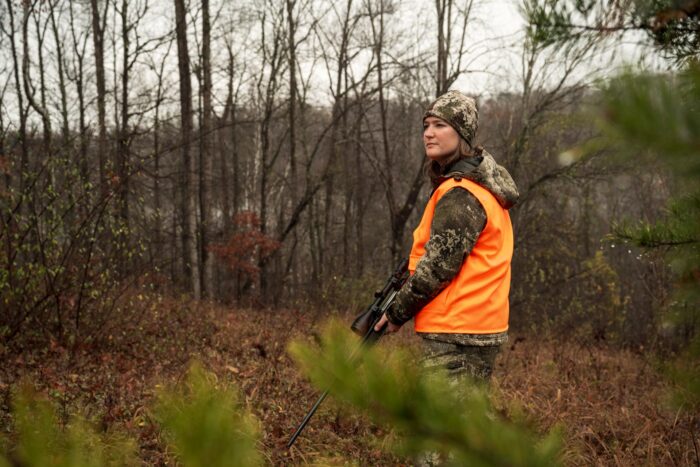
Online Classes (Paid)
Can’t make an in-person class fit your schedule? Approved online hunter education courses are available for a fee and allow you to complete the classroom portion at your own pace.
Online courses involve a two-step process:
- Complete the approved online course and quizzes
- Bring your printed practical exam voucher to a WVDNR hands-on and written exam session
Even if you complete an approved online course, the final test must be completed at one of our in-person test dates. Once both steps are successfully completed, your hunter education card will be issued. Students must register for the hands-on and written exam portion through Register-Ed.
Online options provide flexibility while still ensuring every hunter receives hands-on instruction and testing before heading into the field.
Approved online hunter education courses are provided by the following organizations:
A Proven Program Built on Tradition and Volunteers

The first hunter education class taught in West Virginia was in 1968. Since then, it has grown into one of the most respected programs in the nation with more than 400,000 students completing the course.
That success is made possible by more than 200 trained volunteer instructors who donate countless hours and travel thousands of miles each year to teach hunter education classes across the state.
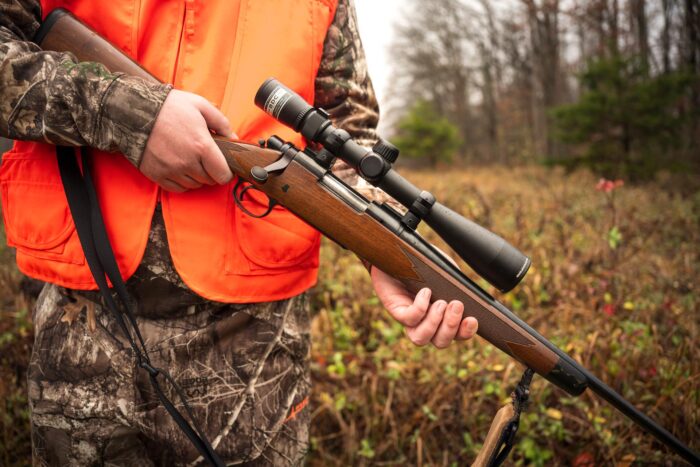
The Ten Commandments of Gun Safety
Safety is the foundation of hunter education. Every hunter should know and follow these 10 principles:
- Treat every gun as if it were loaded.
- Always keep the muzzle pointed in a safe direction.
- Be sure of your target and what is beyond it.
- Be sure the barrel and action are clear of obstructions.
- Unload firearms when not in use.
- Never point a firearm at anything you do not want to shoot.
- Never climb a fence or tree or jump a ditch with a loaded firearm.
- Never shoot a bullet at a flat, hard surface or water.
- Store firearms and ammunition separately.
- Avoid alcoholic beverages and other mind-altering drugs before and during shooting.
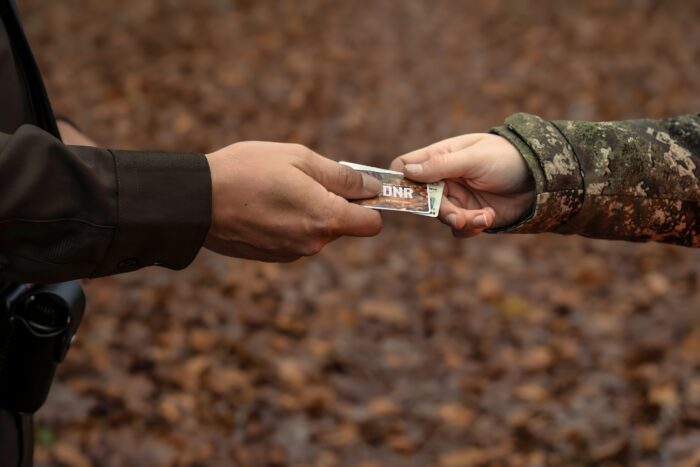
Lost or Misplaced Hunter Education Cards
If you’ve lost your hunter education card, you can request a duplicate through your local WVDNR Law Enforcement Office. Complete an application for a duplicate card and mail it with a $10 check or money order to the address listed on the application. If there is no record of your completion, the $10 will be returned to you.
Hunter Education Staff
| Officer | Location | Contact |
|---|---|---|
| Capt. Warren E. Goodson | HQ – Charleston | 304-558-2784 |
| Sgt. James Crawley | District 1 – Farmington | 304-825-6787 |
| Sgt. Michael Lindale | District 2 – Romney | 304-822-3551 |
| Sgt. Jeremy Quinn | District 3 – French Creek | 304-924-6211 |
| Sgt. Bob Johnson | District 4 – Beckley | 304-256-6947 |
| Sgt. Dakoda Chattin | District 5 – Alum Creek | 304-756-1023 |
| Sgt. Charles Stephens | District 6 – Parkersburg | 304 420-4550 |

